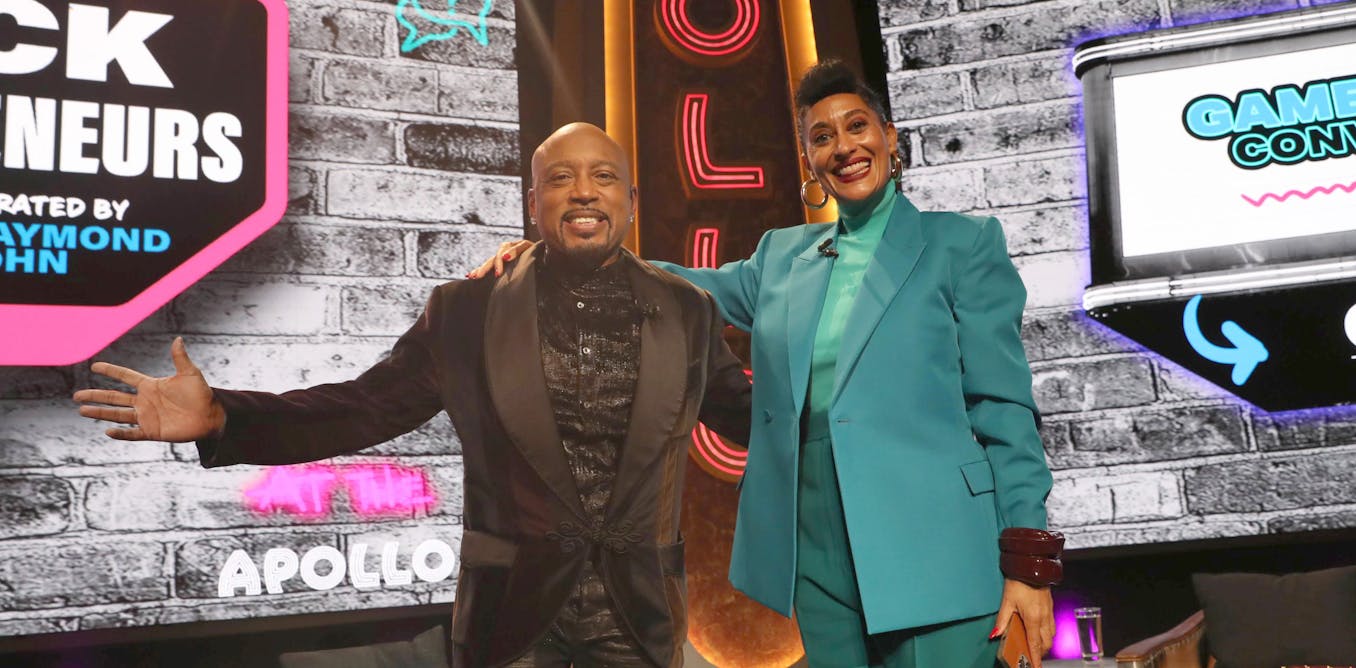Politics
Biden dropped out − is the news media to blame?
For weeks in July 2024, a mix of journalists and academics lamented the news media’s relentless coverage of President Joe Biden’s age since his disastrous debate performance on June 27.
“The New York Times et al wish Joe Biden would go gentle into that good night,” wrote Jeff Jarvis, the director of the Tow-Knight Center for Entrepreneurial Journalism at City University of New York.
“The scale and persistence of this editorial blitz means that the Times, and all the other media that have followed, are both causing and covering the pressure,” wrote Melanie Sill, a former vice president of Southern California Public Radio.
Now, after relentless news coverage focused on both his diminished health and on the pressure he faced from his colleagues, donors and staff, Biden has dropped out of the race.
This raises the question: Are journalists to blame?
“It really looks like Biden was driven out of the campaign by the press,” wrote Dan Kennedy, a professor at Northeastern University’s School of Journalism.
Dan Gillmor, a former journalism professor of practice at Arizona State University, similarly commented that the news media “played a central role in hounding him off the ticket.”
This way of thinking assumes that the power of the press is significant and straightforward: If journalists report on an issue in a certain way for an extended period of time, they will ultimately shape how people feel about it.
In reality, journalists’ influence is far more limited.
The (limited) power of the press
“Media effects” research, which, as the name suggests, “refers to the many ways individuals and society may be iNFLuenced by both news and Entertainment mass media,” has long discredited the idea that people passively and predictably accept media messages – what’s referred to as the “direct effects” model.
Instead, media effects tend to be much more indirect. One of these indirect effects is “agenda setting,” which is the idea that journalists can increase the amount of time people spend thinking about a topic but not how people feel about the topic.
“The mass media set the agenda of issues for a political campaign,” write Maxwell McCombs, a professor emeritus at University of Texas at Austin, and Amy Reynolds, a dean and professor at Kent State University. The media does so not by telling people what to think but by telling them what to think about.
When The New York Times decides to place a story on the newspaper’s front page, Reynolds and McCombs point out, that decision implicitly legitimizes a topic as “newsworthy.”
There are exceptions. Investigative journalism, which reveals new information to the public, can indeed shift public opinion on a topic. For example, the political scientists Frank R. Baumgartner, Suzanna L. De Boef, and Amber E. Boydstun found that when journalists changed the way they framed news stories about the death penalty in the U.S. to emphasize the possibility that errors in the criminal justice system had resulted in the executions of innocent people, public support for the death penalty declined.
Generally, however, calling public attention to a topic isn’t the same as persuading the public what to think about that topic.
For example, public sentiment toward climate change has been fairly consistent. Between 2016 and 2023, about half of Americans reported that they think global warming “will pose a serious threat to their way of life in their own lifetime.” This consistency exists despite the fact that the number of news stories about climate change nearly doubled between 2016 and 2021.
The same is true when it comes to Biden’s age.
Polls show that people have thought for years that Biden was too old to run again. That’s despite the fact that news organizations by and large did not cover Biden’s age-related issues nearly as much before the debate as they began to after, with the exception of The Wall Street Journal.
If the press truly was powerful enough to shape public opinion, you would expect to see the concerns surrounding Biden’s age intensify in tandem with the coverage surrounding Biden’s age.
Instead, the concerns predated the coverage. In hindsight, it seems like the public was paying more attention to Biden’s age than the journalists charged with covering him.

Journalistic humility
This mismatch, between what the public thinks and what journalists do, is consistent with my own research into the relationship between journalism and the public that suggests journalists’ influence over the people they hope to reach is far more limited than conventional wisdom suggests.
As someone who studies the relationship between journalists and the public, I have found that journalists tend to struggle when it comes to engaging with the public. That engagement ranges from seeking more input from the public, getting the public to support the news via subscriptions, donations or memberships in news organizations, to simply competing for public attention in an increasingly overwhelming media environment.
I believe that, taken together, these limitations suggest journalists can never fully understand or control their audiences’ behavior.
It seems less likely that the news coverage alone is what pushed Biden to end his campaign. The coverage clearly got under his skin – in the weeks after the debate, his criticism of the press provided an uncanny echo of the media bashing that the country has gotten used to hearing from Trump.
But it’s more likely that Biden’s frustration with his coverage was less about the journalists than it was about the accurate reporting they provided.
Contrary to the complaints, I believe journalists’ coverage didn’t persuade the public to change its views on Biden so much as it offered the public a close look into the mounting pressure he faced to reconsider his viability as a candidate.
Journalists find themselves in a frustrating position. Their industry has been in financial peril for decades. Most people don’t trust them. Yet there’s this seemingly contradictory sense among the public that journalists are powerful and influential “elites.”
I’ve written before that journalists – as well as the people who study them – should embrace what I call “journalistic humility,” the acceptance that how audiences think about and interact with the news will always be, to some extent, outside of journalists’ control.
Perhaps it would be helpful if those outside of journalism accepted these limits of the press as well.
-

 Politics6h ago
Politics6h agoWhy Trump Actually Needs Mexico
-

 Politics6h ago
Politics6h agoMan Convicted of Killing Laken Riley Sentenced to Life in Prison Without Parole
-
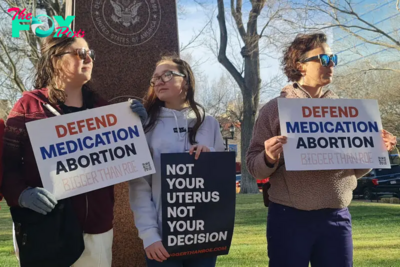
 Politics12h ago
Politics12h agoHow the Biden Administration Protected Abortion Pill Access—and What Trump Could Do Next
-

 Politics12h ago
Politics12h agoWhy Trump’s Tariffs Could Raise Grocery Prices
-
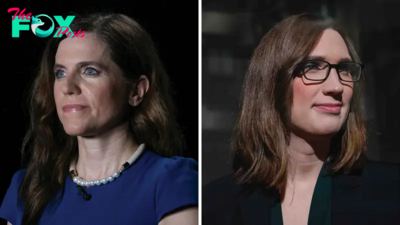
 Politics23h ago
Politics23h agoThe First Trans Member of Congress Expected Pushback Like Mace’s Bathroom Rule
-
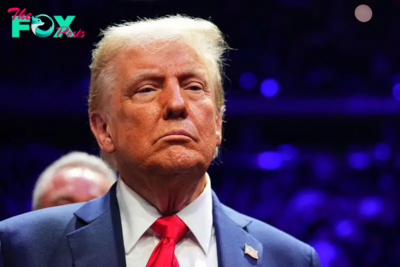
 Politics23h ago
Politics23h agoNew York Prosecutors Oppose Dismissing Trump’s Hush Money Conviction
-

 Politics1d ago
Politics1d agoWhite House Christmas Tree Is a Symbol of Resilience for Hurricane-Hit North Carolina Farms
-
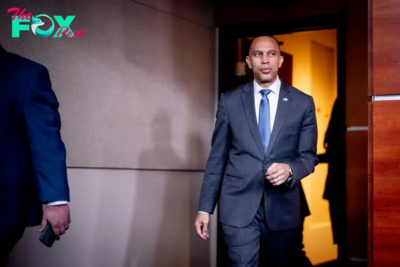
 Politics1d ago
Politics1d agoHakeem Jeffries Wins Reelection as House Democratic Leader Despite Party’s Losses



